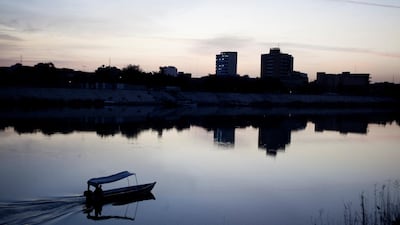Without food, a human being can live for weeks. But 65 per cent of the human body is water and without it we can survive for no more than a few days – even less, in a hot climate. It follows, therefore, that to restrict access to water as a weapon, or as a tool of political manipulation, is an intolerable crime against humanity. Yet throughout the region, increasing demand for water in the face of diminishing supplies is setting neighbour against neighbour, threatening to overturn international conventions and long-term agreements and bringing the prospect of water wars ever closer to reality.
There are many potential flashpoints around the world, with water scarcity threatening the security of millions of people in dozens of countries reliant upon, and competing for, the life-giving resources of rivers controlled by neighbouring states. But nowhere is the situation more critical than in the Middle East, as our special report today highlights. Egypt, as the last in line of 11 countries dependent upon the Nile, faces the existential threat of a massive hydroelectric dam being built upriver by Ethiopia, in defiance of long-term regional agreements. Afghanistan and Iran are increasingly at odds over fair access to the water of the Helmand river, a vital resource for farmers on both sides of the border, governed by a treaty that dates back 45 years. Iraq, meanwhile, is being deprived of water by its upstream neighbours Iran and Turkey, whose dams are parching the once-fertile plains between the Tigris and Euphrates rivers and which have been blamed for the freshwater shortage and sanitation crisis that led to violent protests last year in Basra. It is no coincidence that close by the banks of the Nile, Tigris and Euphrates, three of the seven ancient wonders of the world sprang up, providing a vital source of sustenance to both workers and magnificent architectural projects. Yet those same three rivers are today under threat, thanks to the detrimental impact of man-made crises: dams and climate change.
No accident of geography gives one nation the right to deprive another of water. Equally, it is unthinkable that nations should go to war over this most vital resource. A report published in September by the United Nations identified "hydropolitical risk" as one of the greatest threats of the coming decades, likely to trigger widespread social unrest, regional instability and worse. Diplomacy is the only tenable solution to all of these potential crises. The international community must act with urgency to ensure fair agreements are struck and adhered to. It won't be easy to balance the growing and competing needs of nations that, in many cases, have uneasy relationships, but it must be done. The alternative is too catastrophic to contemplate.

